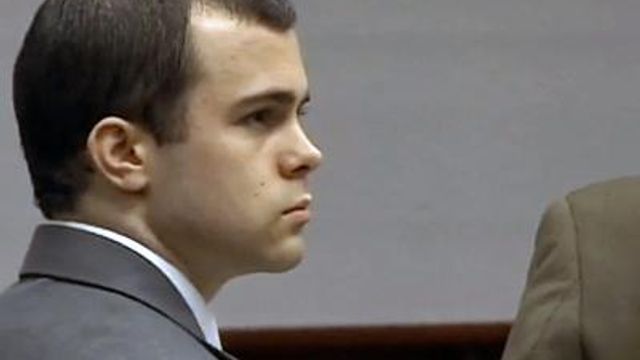Detective: Teen's alleged killer seemed cold, indifferent
Closing arguments are expected Thursday in the murder trial of Ryan Hare. Prosecutors rested their case Wednesday after eight days and 23 witnesses. The defense will not present any evidence.
Posted — UpdatedRyan Patrick Hare, 19, is charged with first-degree murder in the Nov. 30, 2008, death of Matthew Josiah Silliman.
Prosecutors have contended that Hare was jealous of the 18-year-old because of the close relationship he had with Hare's girlfriend, who is also charged in the case.
Hare's defense attorney, Robert Padovano, however, has said Silliman, who had a history of depression and bipolar disorder, wanted to die and was at a point where he no longer was "willing to battle his demons."
His client's role in the case was one of assisted suicide, not murder, Padovano said during opening statements last week.
Padovano said Wednesday afternoon, however, that he will not present any evidence in the case.
Closing arguments are expected Thursday morning.
Jurors spent part of Wednesday morning watching a nearly two-hour interrogation of Hare shortly after he was detained on Dec. 3, 2008.
At times, he laughed during Wake County sheriff's investigator Robert Campen's questioning about his relationship with Silliman.
"I didn't really trust him," Hare said in the video, when Campen asked if he had issues with Silliman. "He kissed my girlfriend."
Campen said Hare seemed cold and indifferent during the interview and that his response upon hearing of Silliman's death wasn't typical of that of a friend or an acquaintance.
"I probably did a lot more talking than I needed to, but I was trying to get him to open up. I found his responses calculated, indifferent," Campen said.
Prosecutors have characterized Hare as the mastermind behind an elaborate scheme to lure Silliman to an abandoned trailer in New Hill, where Silliman thought he was hiding from a fictitious man named Roger who was out to kill him.
Authorities found Silliman's body on Dec. 2, 2008, after one of Hare's co-defendants, Drew Shaw, told his grandmother about the crime and she alerted police.
Shaw and Hare's girlfriend at the time of the crime, Allegra Dahlquist, testified that Hare had tried once before to kill Silliman and that, when the attempt failed, Hare convinced Silliman that he was trying to fake his death so that Roger would think he was dead.
The night Silliman died, they testified, Hare failed to knock him unconscious with a hammer and then gave Silliman an ultimatum to either be killed or kill himself.
Silliman chose the latter option and drank wine and took prescription drugs until he passed out, Dahlquist testified.
Hare, Dahlquist and a third co-defendant, Aadil Khan, ultimately bound Silliman's hands and feet with zip ties, placed duct tape over his mouth and a plastic bag over his head, witnesses testified.
Dahlquist said Hare tightened a zip tie around Silliman’s neck and left him in the guest bathroom of the trailer.
Dr. Ruth Winecker, chief toxicologist for the state Office of the Chief Medical Examiner, also testified Wednesday, that lab results found evidence of pain relievers, anti-depressants and anti-inflammatory drugs in Silliman's body. Although the levels of drugs were potentially lethal, it was highly unlikely they were fatal in this case, she said.
Associate Chief Medical Examiner Dr. Sam Simmons said the drugs, along with the high level of alcohol, could have contributed to Silliman's death in that they would have lessened his ability to respond, but that he ultimately died of asphyxiation.
If convicted of first-degree murder, Hare would be sentenced to life in prison without parole.
Khan, 19, and Shaw, 18, are still awaiting trial on the same charge.
Last month, Dahlquist, 19, accepted a plea deal from the state in exchange for her testimony. She is expected to be sentenced once the trial is over.
Khan had also pleaded guilty to lesser charges in the case in exchange for his testimony, but prosecutors filed a motion last week to withdraw the deal, saying he was uncooperative.
• Credits
Copyright 2024 by Capitol Broadcasting Company. All rights reserved. This material may not be published, broadcast, rewritten or redistributed.





